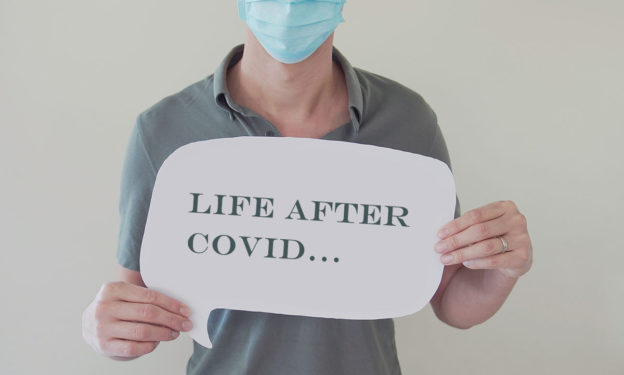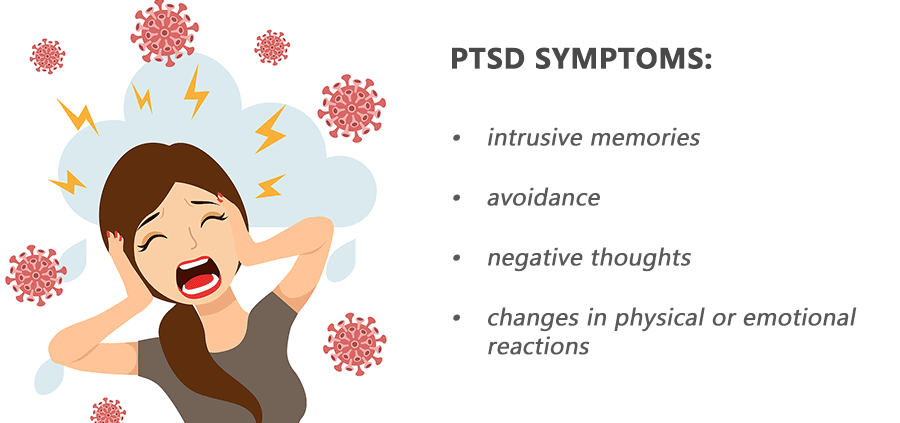The impact of the COVID pandemic will be felt for a long time to come. People have lost cherished family members, jobs, and watched their communities struggle. Many survivors recovering from the coronavirus are facing health effects that may last a lifetime.
COVID is so much more than a health issue. It has changed how we view the world, ourselves, and others.
The inability to breathe freely (our most basic survival function) made us feel beyond vulnerable.
Breathing is not a choice. Inhaling oxygen from the air became a life threat with tragic consequences. Death became part of our daily count, not just from COVID but from overdoses and suicide. Loneliness, anxiety, and consequently anger spurred outbursts of crime, social arrest, and destruction.
For over 25 years, people from all over the world have chosen Waismann Method as their opioid detox provider.
We know the challenges you face and the importance of creating a unique and personal experience for you right from the start.Call for Detox Options 1-800-423-2482
As people tried to cope, too many self-medicated using alcohol or drugs. COVID created not just a health crisis, but a mental health crisis as well.
Although the speed at which a COVID vaccine was created and produced was nothing short of miraculous, there are still many unknowns — unknowns that keep our vulnerability in a state of constant anxiety. Where did COVID 19 come from? How did it get released into the world? Was it a natural occurrence, a mistake, or a weapon? Can it happen again, or worse, will it happen again?
A Lack of Control
When we are burglarized, we immediately create new procedures to prevent it from happening again. We install home alarms. We upgrade door locks or add cameras. Maybe we get a guard dog. These actions provide us with a sense of control. We are doing something to safeguard ourselves. Whether these actions work or not, we have helped our mental state by acting.
Life after COVID is different. How can we prevent from becoming a victim of future viruses when we do not really understand what, when, and how it came to be? How are we expected to put our masks down and take a deep breath of relief when breathing is what got us in trouble in the first place? Will we ever reach full COVID-19 immunity or is it now part of our lives forever?
Even as life slowly starts to return to normal, it is different. Many walk into a restaurant and immediately check to see how far apart the tables and wonder if customers and staff have been vaccinated. There can be a profound sense of unease and stress with everyday activities.
As a society, many will be collectively suffering from a new type of PTSD for years to come. We’ve become a society feeling vulnerable to practicing our basic functions. For many, this period in our lives will be forever marked as before-COVID and after-COVID.
The Wounds You Cannot See
Tamar Rodney is an Assistant Professor at the John Hopkins School of Nursing and a researcher specializing in the biomarkers of PTSD in veterans. Rodney sees the signs of PTSD all around us.
Much of trauma research revolves around the concept of a singular event that produces a negative outcome. The pandemic, she says, has been an escalating series of events that have impacted our medical, social, and emotional lives over an extended period. She calls it the wounds you cannot see.
“If you have a cut, you put a Band-Aid on it, and everyone knows it is an area of tenderness and not to disturb it,” Rodney said. “Now with mental health experiences, these scars still exist, but they are so deeply buried, and they are not acknowledged many times, and it’s assumed that an individual might be OK.”
PTSD symptoms typically share one or all of four major symptoms:
- Intrusive memories: Concerns or memories interrupt thoughts or emotional well-being. People suffering from PTSD may relive particular events or react negatively to anything that reminds them of the trauma
- Avoidance: Those afflicted may try to avoid thinking or talking about the traumatic event and then get upset when they do. They tend to avoid places or people that they worry might put them at risk.
- Negative thoughts: There can be a sense of hopelessness about the future. They become detached from others, have a lack of interest in things they enjoyed in the past, may have a hard time experiencing positive emotions, or feel emotionally numb.
- Changes in physical or emotional reactions: PTSD sufferers often feel they are always on guard for danger. This heightened sense of awareness can create profound emotional stress. Physical reactions might manifest as trouble sleeping or concentrating. They may feel guilt for surviving an event when so many others did not.
Sound familiar?
We associate PTSD symptoms with people that have gone through intense trauma, such as war. COVID is both an intense trauma and prolonged trauma. Nearly everybody living in a COVID world has experienced some or all of these symptoms.
Pre-COVID, one out of eight visits to emergency rooms nationwide was related to mental health or substance use disorders. Yet during COVID, many were afraid to seek help because of fears that they might catch COVID at the hospital or that medical facilities were too busy dealing with COVID patients to be able to care for them. This meant many mental health issues went untreated and only compounded the situation.
For many, it meant turning to self-destructive behavior, such as abusing medications, illegal drugs, or alcohol.
Healing in Masses
I believe in order to heal; we need to trust.
In order to trust, we need to believe.— Clare Waismann, M-RAS/SUDCC II
For the healing to start, we as a society will need to start giving each other a break and find ways to connect with each other. We have so much more in common than differences.
The healing, however, is more than just treating the symptoms of the disease itself. We need to use our resources to provide people access to mental health care. Drugs and alcohol should not be how people feel content or safe.
We as a society can do much more and much better. Although life after COVID may be different, it does not mean it should be worse. We are all humans with the necessity to feel heard, safe, and able.
Sources:
- COVID-19 and PTSD: A pandemic’s hidden trauma
- Trends in Emergency Department Visits Involving Mental and Substance Use Disorders
Written by Paul Dughi
Paul Dughi is a multiple Emmy Award® winner with more than 20 years’ of experience as a journalist working for some of the country’s top publishers. For the past 10 years, Paul has worked as a marketing and advertising expert on projects for hundreds of clients. He holds an MBA in Business Administration and has earned the Content Strategy MasterClass Certification at Writer Access. He also holds certifications from Google, Moz, Facebook, Local Marketing Association, and the Interactive Advertising Bureau.
Reviewed by Clare Waismann, Registered Addiction Specialist (RAS), Substance Use Disorder Certified Counselor (SUDCC), founder of Waismann Method® Advanced Treatment for Opiate Dependence and Domus Retreat®. Clare Waismann is an authority and expert on opioid dependence, opioid use disorder, substance dependence, detoxification treatments, detox recovery, and other topics covered on RapidDetox.com.







